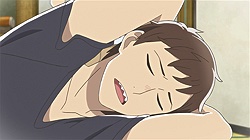 |
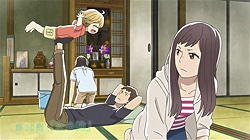 |
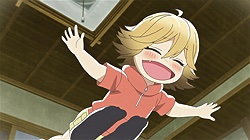 |
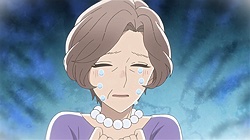 |
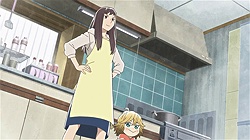 |
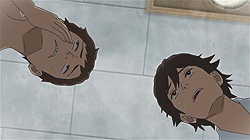 |
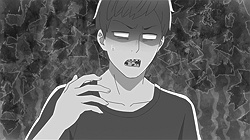 |
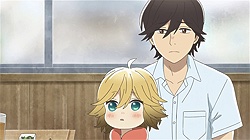 |
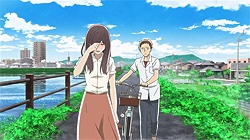 |
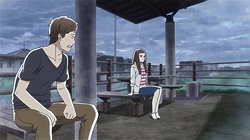 |
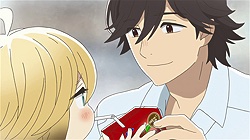 |
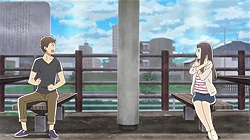 |
 |
 |
 |
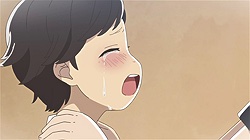 |
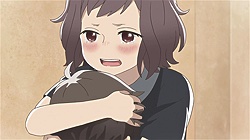 |
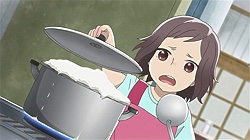 |
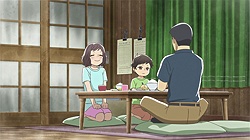 |
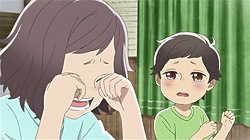 |
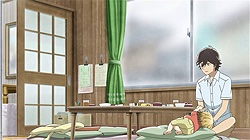 |
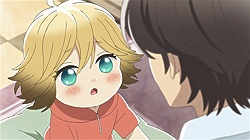 |
 |
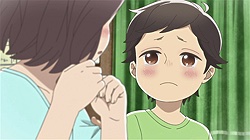 |
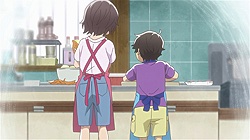 |
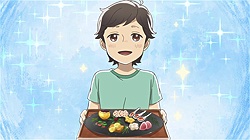 |
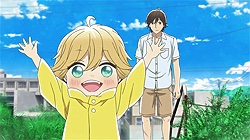 |
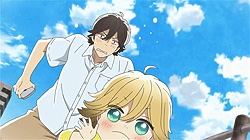 |
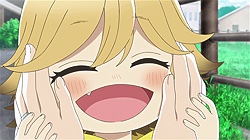 |
 |
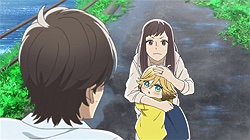 |
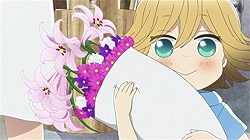 |
 |
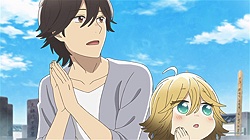 |
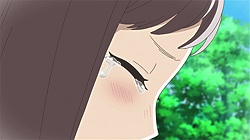 |
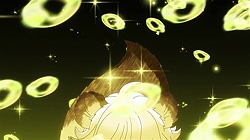 |
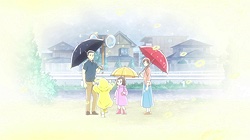 |
 |
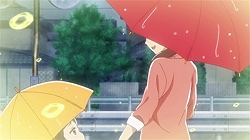 |
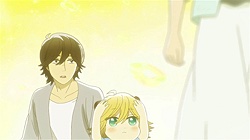 |
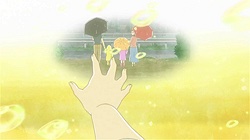 |
 |
 |
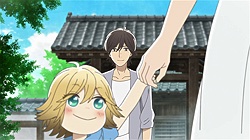 |
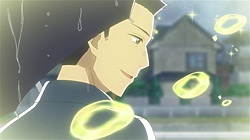 |
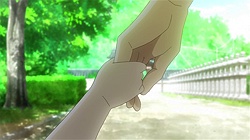 |
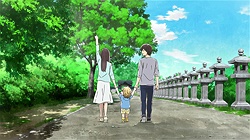 |
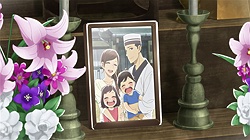 |
「ため池」 (Tameike)
“Reservoir”
Yes, but those were manly tears. GAR even.
I don’t know why, but this sort of story seems to be what manga and anime can do best. The simple and profound exploration of our most universal human emotions – maybe there’s something in the Japanese character that lends itself to that kind of artistic exploration, I don’t know. I just know that there’s nothing that anime as a medium does better, and there’s no medium (besides manga) that does it better than anime. It’s a match made in Heaven and I hope that never changes.
There hasn’t been an off episode of Udon no Kuni no Kiniro Kemari, that’s for certain, but for me the ones featuring this quartet of characters have been the most resonant. Siblings, childhood best friends, parents missing and still with us – it’s pretty much all covered with Souta, Rinko, Nakajima and Poko. And none of their interactions have struck a single off note with me – the emotional accuracy of Udon no Kuni is off the charts. It’s a fairy tale, sure, but somehow also the most real series of the season – and that kind of connection, too, is something anime seems uniquely good at (as I expect Uchouten Kazoku 2 to reaffirm next year).
This show is really about the things all of us feel, the hopes and dreams and fears, and the connections that draw us to each other. It revolves around certain things I’ve come to regard as universally true, and one of them is that out family is always our family, no matter where we go in life and what we do. Those who grew up with us and watched us growing up know us better than anyone else does, no matter whether that makes us uncomfortable or not. What could be more universal than the feeling of wanting to see a lost parent just one more time – and who could understand that better than Souta and Rinko, when they see each other expressing it?
I tell you, that flashback scene when Rinko tried to cook for Souta and their dad really hit me hard – hardest of all when Souta saw how much it hurt Rinko when he said her food didn’t taste like their mother’s, and apologized. That’s understanding on the most visceral and fundamental level – and I don’t know that anyone but siblings could ever share it. Not even their father, whose own heart was breaking over the loss of the wife he presumably loved, could feel what those kids were feeling in exactly that way – but they could. And they understood.
Of course one of the things that makes the particular dynamic of this series so wonderful is that Nakajima is part of the family too, even if he’s not blood-related. We can’t choose our family but we can choose our friends, the old saying goes, and that fosters a different sort of intimacy and closeness. That’s what Rinko says when Shinobu admits that he had a crush on her – right before she tells him she’s pregnant (though I suspect most of us had guessed by that point). Shinobu’s situation is very different than Rinko and Souta’s – his parents are both still around. And for all the aggravation they cause him (general head-butting with his father, Omiai to please his ultra-manipulative mother) being with Souta and Rinko reminds him of how fortunate he really is.
I think by now it’s clear how Poko fits into all this. By his presence he reminds everyone of what should be important to them, and clears the cobwebs from their blind spots. But it’s more than simply his role in the story, it’s his function as a mystical being – and if there were any doubts, they were dashed in the most blatant manner yet when he unleashed his tanuki powers at the cemetery and helped Rinko and Souta see a vision of the family past. Rinko’s fear is again as universal as one can imagine – “Will I be a good mother?” Poko has helped her change her view of small children, and the way his presence has changed Souta has given her proof that people can learn to be good parents even if there’s no one around to teach them. But Souta’s maternal prowess surely amps up the pressure on her, too – to live up to his standard. And since it was he who turned out to be the good cook between them, her insecurity on this front has been around for a long time.
There’s one more element to Poko’s vision, certainly, and that’s when Souta sees his young self tell his father that he wants to “be cool and cook udon!” just like him one day. This is the theme that’s at the very core of Udon no Kuni – through Poko, Souta coming to know his father as he never did in life. To support and protect a helpless little life that depends on you – this is no small weight, and only now that Souta realize the crushing nature of it for his father (especially after his mother died). I don’t know if this lesson ends with Souta literally following in his father’s footsteps and re-opening the udon-ya, and truthfully I’m equally fine whether it does or not. What really matters the most is that the distances between the people who make up this superb cast are being closed with Poko’s help, even across the yawning chasm of time – and that’s the real miracle of Poko, and of Udon no Kuni no Kiniro Kemari.
Preview
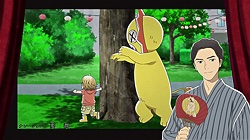 |
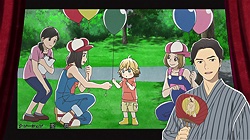 |
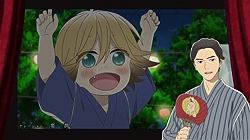 |
Omake
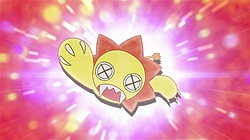 |
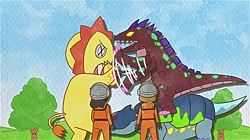 |
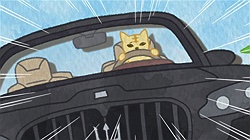 |

I like that the one moment where they do away with the subtlety and put out both Poko’s powers and the tearjerkers in full force, is the moment that’s most likely going to be the biggest turning point for these characters. That there’s no more putting things off; change is happening in all of their lives, and it’s most likely the trigger that will get Souta to restart the udon restaurant.
Indeed. But is that also the moment that starts the process of Poko exiting out of their lives?
I dare say the flags are out for that. The buildup, the reveal, the finale.
This episode reminds me of the first time my sister came in and declared to the whole family “I’m pregnant!!” The very first thing that happened before anyone said a word was the cocking of a revolver.
Well played Old Man. Bro-in-law was sweating bullets. Literally!